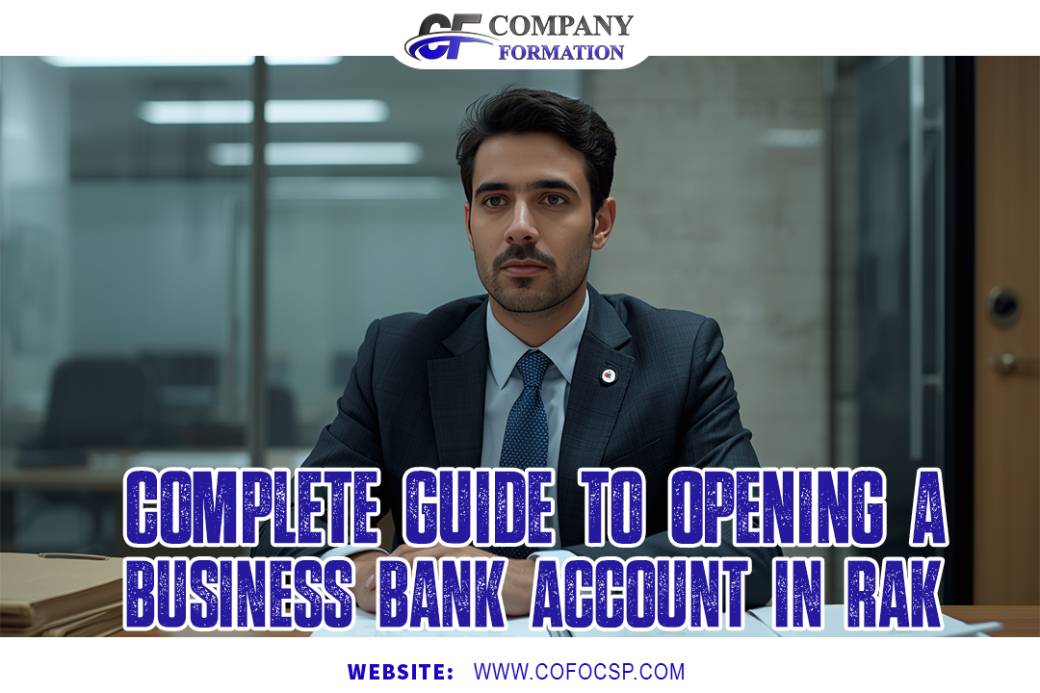How to Begin a Storage and Warehousing Business in Dubai?
Here are a few steps on how to start a warehouse business in Dubai. “First, do market research and find out what people need. You can then select whether you want to be based in a Free Zone (such as JAFZA or Meydan) or on the Mainland. After that, choose a trade name and file for a warehouse license. A private license runs around AED 25,000, and a public license around AED 150,000. Then you have to rent a warehouse, obtain a customs code, apply for visas for your staff, and open a bank account for your business.
Why Start a Warehouse Business in Dubai, UAE?
There are few places in the world better for a warehouse than Dubai, it turns out. It is well situated with good means of transportation and plain rules for business. From what I have experienced, Dubai’s relatively young system and tax-free law make it safe and lucrative.
The country’s local economy exceeds USD 1.2 trillion in annual trade. The e-commerce industry is also expanding and could surge to USD 13.7 billion in 2027. This expansion generates a large demand for storage, delivery centers, and services like logistics. You might decide to operate an e-commerce warehouse, cold storage, or freight forwarding and have lots of eager customers.
The Role of Dubai as a Global Trade Center
It is Asia, Europe, and Africa together here in Dubai. It links the trade of more than 3 billion people. Its two biggest ports, Jebel Ali Port, one of the largest ports in the world, and Dubai International Airport, which transported 2.1 million tonnes of freight last year, facilitate the swift movement of goods. Warehouse owners are going here because it provides near-seamless shipping and near-effortless access to world markets.
With its no-tax, high-end services and port location on a gulf, Dubai makes an appealing stop for global trade.
Booming Demand for Warehousing Services
The growth of e-commerce and world trade has also increased demand for warehouses in Dubai. A warehouse is required to store products and control stock for many industries, including retail, manufacturing, construction, and healthcare. Some companies must also have bonded warehouses (where goods can be stored tax-free) or climate-controlled warehouses (where food and medicine can be stored). This provides investors with a lot of opportunities to grow.
Tax-Free Environment and Business-Friendly Policies
Among the biggest advantages of Dubai are its tax-free laws. 0% Tax: Companies under the Free Zone are exempted from corporate tax and import and export duties and are 100% foreign owned. Mainland firms are free to do business across the entire UAE.
The World Bank ranks the UAE as one of the world’s 20 easiest places to do business. That’s because Dubai has easy processes, quick approvals, and low start-up costs.” Free Zones further attest to the 0% corporate tax payment, while no customs fees make the Free Zones a favorite of investors.
Key Considerations Before Launching Your Warehouse Business
Preparation is critical before venturing into a warehouse business in Dubai. I’ve learned from experience that confronting these things early is a time and money saver:
Conducting Comprehensive Market Research
The cornerstone of a prosperous warehouse business is marketing research. Analyze:
- Demand: Look for high-demand sectors such as e-commerce, warehousing, or cold storage logistics.
- Competition: Research logistics bigwigs and find gaps (sustainable warehousing).
- Revenue Streams: Target service-based lines such as third-party logistics or freight brokering.
You can also utilize Ministry of Economy reports or the figures found in Statista to see more on the trends between trade volume and e-commerce growth in the UAE. Use industry reports and trade data to study demand, competition, and revenue streams.
Navigating Documentation Requirements
Establishing a business in Dubai includes bureaucratic hoops to jump through. Key documents include:
- Business Plan: A document describing an organization’s goals and financial projections.
- Passport Copies: Of the shareholders, directors, and managers.
- “Proof of Residence/Visa: (applicable for foreign investors).
- No Objection Certificate (NOC): For shareholders who are residents of the UAE.
- If appropriate, Trade Name Reservation (to show the name as unique if possible).
- Certificate of Initial Approval: From DED or Free Zone authority.
- Memorandum of Association (MOA): List of company objects.
- Lease Contract: The warehouse is rented with the Ejari.
If you are missing documents, your trade license or your general warehouse license may be delayed.
Understanding Dubai’s Logistics Ecosystem
There is a lot of paperwork involved in setting up a logistics business: Emirati customs rules and RTA permits. For instance, bonded warehousing is subject to customs control, and the transportation of goods needs to be conducted using RTA-registered vehicles. Having the right UAE PRO services provider helps to reduce the complexity.
All warehouse operations and import-export are to be done as per Dubai Customs, RTA, and Dubai Municipality.
Building Strong Supplier Networks
It’s key to develop relationships with vendors and clients. Hold virtual meetings with prospective customers or visit trade shows to make connections with other freight forwarding or e-commerce businesses. Durable communications allow for flight inventory management and customs clearance.
Hiring a Qualified Workforce
The mix of people who make up Dubai’s labor force includes talent in sectors such as
- Managers of logistics: They supervise supply chain management.
- Warehouse Workers: Loading/Unloading and Sorting.
- Customs Agents: Manage customs declarations.
- Drivers: Require RTA commercial licenses.
Educate employees about warehouse computer systems and safety.
Developing an Effective Marketing Strategy
Strong marketing brings in clients. Use:
- Internet marketing: SEO and social media for marketing warehousing services.
- Trade shows: Feature climate-controlled storage or e-commerce fulfillment.
- Networking: Join logistics companies to receive referrals.
Draw in e-commerce and logistics customers through digital marketing, trade shows, and networking.
Setting Strategic Long-Term Goals
Create long-term goals to grow your warehousing business. For example:
- Grow your footprint for sustainable warehousing through energy-efficient capabilities.
- Include warehouse automation, such as IoT or robotics.
- Target specialty markets such as hazardous material storage.
These align with Dubai’s aspirations as a logistics hub.
How to Open a Warehouse in Dubai: Step-by-Step Guide
Starting a warehouse business in Dubai, UAE, requires a clear roadmap. Drawing from my experience navigating business setup in Dubai, here’s an 11-step guide:
Step 1: Identify Your Warehousing Activities
Choose your warehousing activities:
- 3rd Party Logistics (3PL): Inventory management and delivery.
- Freight Brokering: Arrange cargo transportation.
- E-Commerce Fulfillment: Manage the processing of orders and last-mile delivery.
- Cold Storage: Keep perishables with blast freeze.
- Bonded Warehouses: Storage of import-export cargo that is duty-free.
- Every single task influences the kind of permit required and the proper equipment.
- COVERAGE: Services include 3PL, brokering, order fulfillment, cold storage, and bonded warehousing.
Step 2: Free Zone vs. Mainland Setup Free Zone
A free zone company can be 100% owned by foreign investors with no need for a local sponsor or business partner.
Choose between Free Zone and Mainland:
Free Zone:
- 100% foreign ownership.
- 0% on corporate tax and no import duties.
- RERA permit number for this property: 2146861647. Ideal for commercial purposes (JAFZA / Dubai South).
- Mainland warehouse operation needs NOC.
Mainland:
Trade across the UAE without restrictions.
- A local service agent is mandatory for some activities.
- Eligible for government contracts.
- A Free Zone represents tax-free, while Mainland represents wide access to markets.
Step 3: Choose a business type for your legal business.
Choose a legal structure:
- Sole Proprietorship: One owner is fully responsible.
- Multiple shareholders, limited liability. Fewer than 100 owners. Any type of entity Shareholders control management and pay out dividends under corporate rules and restrictions.
- FZE formations: Only one corporate shareholder in a Free Zone.
- Free Zone Company (FZCO): Various shareholders in a Free Zone.
Step 4: Register Trade Name With the Department of Trade.
Choose an appropriate trade name for your warehouse business (such as “Global Logistics Solutions”). Ensure it’s:
- Special (ask for DED or Free Zone authority).
- Free from offensive or religious terms.
- Aligned with business activities.
- Choose a distinct, activity-fitting name and check its availability with DED.
Step 5: Get a General Warehouse License
Apply through:
- DED for mainland setups.
- Free Zone authority (Meydan Free Zone, RAKEZ, etc.) for Free Zone establishments.
Additional approvals:
- Dubai Municipality: For warehouse safety.
- Dubai Customs: For customs warehouse licenses.
- RTA: For cargo transportation.
Licenses are delivered in 7 business days, according to Dubai Customs.
Step 6: Have a Lease Contract for Your Warehouse and Register for Ejari
Take a warehouse for rent in cluster locations such as JAFZA, Dubai Commerce City, or KIZAD. Provide:
Lease agreement.
- Ejari registration for mainland setups.
- NOC if a Free Zone license is to be used against a Mainland warehouse.
- AED 50,000 to AED 200,000 (approximately) per annum (depending on location and size).
7: Enroll in Dubai Customs
- For import-export, our recommendation is to enroll with Dubai Customs as well, for import or export purposes.
- Register with Dubai Customs for a customs code if you are into import-export or bonded warehouse business. This is in order to clear customs and send it with a freight forwarder.
Step 8: Setting up a Corporate Bank Account in Dubai
Open a corporate account with a UAE bank that has knowledge of the logistics business. Submit:
- Trade license copy.
- Passport copies of shareholders.
- MOA and business address proof.
The business setup professionals may recommend the banks for international transactions.
9: Get Visas and Work Permits
Get visas issued from GDRFA and register with MOHRE for an establishment card. Sponsor visas for:
- Logistics managers.
- Warehouse operators.
- Drivers (with RTA commercial licenses).
- Dependents (based on company size).
The number varies based on company size and setup type.
Step 10: Equipment Investment for Your Warehouse
Invest in:
- Warehouse management software: To track inventory and fulfill orders.
- Material handling devices: Fork trucks, skids, and racks.
- Climate-controlled storage: For items that require cold storage or should be kept away from dangerous climate conditions.
- Fleet management software: To transfer shipments.
- IoT, AI, and robotics will drive efficiency by 2025 trends.
Step 11: Comply with 2025 Standards
Comply with:
- Dubai Municipality: To ensure safety for the warehouse and the civil defense certificate.
- ISO standards: For quality management and environmental standards.
- Corporate Tax UAE: Where relevant for Mainland formations.
- Trade compliance: For import-export processes.
Get the Dubai Municipality approval, the civil defense certificate, and the ISO standards.
Top Warehousing Hubs in Dubai and the UAE
There are myriad services that a Dubai-based warehouse business can provide, catering to a client’s requirements:
Third-Party Logistics (3PL) Services
Handle client inventory, order processing, and shipping, especially for e-commerce companies.
Freight Brokering and Customs Clearance
Make all your arrangements for cargo transport by air, sea, and rail and process customs declarations as a customs broker.
Warehouse Maintenance and Operations
Offer loading/unloading, sorting, packing, and warehousing for an effective storage solution.
Customs Agent Services
Act for clients in customs clearance in accordance with the Dubai Customs law.
Cargo Transportation and Distribution
Drive trucks, planes, or ships to transport cargo registered under RTA for commercial driving.
E-Commerce Fulfillment Centers
Back online with inventory management, packaging, and last-mile delivery for e-commerce.
Top Warehousing Hubs in Dubai and the UAE
Choosing the right warehousing hub is critical. Here are the top options:
1. Jebel Ali Free Zone (JAFZA)
JAFZA, near Jebel Ali Port, is ideal for import-export and freight forwarding. It offers tax exemptions and warehouse for lease options.
2. Dubai South Free Zone
Near Al Maktoum International Airport, Dubai South excels in air freight logistics and e-commerce warehousing.
3. Dubai Commerce City
A hub for e-commerce trade, Dubai Commerce City provides digital services and logistics corridors.
4. Sharjah Airport Free Zone (SAIF Zone)
SAIF Zone, near Sharjah International Airport, offers cost-effective warehousing solutions with global connectivity.
5. Hamriyah Free Zone
In Sharjah, Hamriyah Free Zone supports maritime freight with deep-water access and large-scale storage facilities.
6. Khalifa Industrial Zone Abu Dhabi (KIZAD)
KIZAD offers modular clusters and connectivity via air, sea, road, and rail, ideal for large warehouse operations.
7. Ras Al Khaimah Economic Zone (RAKEZ)
RAKEZ provides competitive pricing and modern warehouse facilities, serving both eastern and western markets.
JAFZA is top for import-export, Dubai South for e-commerce, and RAKEZ for cost-effectiveness.
Warehouse License Costs and Additional Expenses
Here are approximate cost:
| Category | Details | Estimated Cost (AED) | Notes |
| Private Warehouse License | For storing own goods | 25,000 + 50,000 (bank guarantee) | Dubai Customs requirement |
| Public Warehouse License | For offering services to others | 150,000 + 1,500,000 (bank guarantee) | Dubai Customs requirement |
| Knowledge & Innovation Fee | Standard additional fee | 20 | Applies to all licenses |
| Warehouse Lease | Annual rent (location-based, e.g., JAFZA, KIZAD) | 50,000 – 200,000 | Depends on size & zone |
| Visa Fees | Based on employee count | Varies | Cost increases with more staff |
| Customs Registration | Needed for import/export | Varies | Required for bonded or trade warehouses |
| Equipment | Forklifts, pallets, cold storage, WMS software | Varies | One-time & ongoing |
| Insurance | For warehouse & cargo | Varies | Based on warehouse type & coverage |
Using a Free Zone License for a Mainland Warehouse
A Free Zone license can be used to operate a mainland warehouse, offering flexibility and savings.
Obtaining a No Objection Certificate (NOC)
Request an NOC from the Free Zone authority (e.g., Meydan Free Zone, JAFZA) to rent a mainland warehouse. Ensure a clear lease agreement with the warehouse owner.
Advantages of Free Zone License for Mainland Operations
- Cost Savings: Free Zone licenses start at AED 11,900, cheaper than Mainland (AED 25,500).
- Full Ownership: 100% foreign ownership without a local service agent.
- Tax Exemptions: 0% corporate tax and no import duties.
- Simplified Processes: Faster business registration in Free Zones.
Operational Challenges and Solutions
Challenges include:
- NOC Process: Can delay setup if not planned.
- Customs Supervision: Mainland warehouses may require additional customs clearance.
- Regulatory Compliance: Align with Mainland and Free Zone rules.
Solutions:
- Work with UAE PRO services for NOC and customs compliance.
- Partner with a Mainland distributor for seamless operations.
Yes, with an NOC, you can operate a mainland warehouse while enjoying free zone benefits.
How Business Setup Consultants Can Simplify the Process
Navigating the UAE business setup can be complex. Business setup experts streamline the process, saving time and ensuring compliance.
Benefits of UAE PRO Services
UAE PRO services handle:
- Licensing: Obtaining trade licenses and general warehouse licenses.
- Documentation: Preparing business plans, MOA, and passport copies.
- Compliance: Managing Dubai Customs, RTA, and Dubai Municipality approvals.
Streamlining Licensing and Documentation
Experts ensure your business registration in Dubai is error-free, avoiding delays in trade name approval or license issuance.
Support for Visa and Bank Account Opening
Business setup experts assist with:
- Visa sponsorship: For employees and dependents via GDRFA and MOHRE.
- Bank account opening in Dubai: Recommending banks for logistics businesses.
They streamline licensing, documentation, visa processing, and bank account opening.
FAQs: Common Questions About Starting a Warehouse Business in Dubai
Q1: What is the cost to rent a warehouse in Dubai?
The cost to rent a warehouse in Dubai is between AED 50,000 and AED 200,000 per year. The price depends on the location (for example, JAFZA or Dubai Commerce City) and the type of facilities offered.
Q2: What are the benefits of JAFZA vs. RAKEZ for warehousing?
JAFZA is close to Jebel Ali Port, which makes shipping faster, and it also offers tax benefits. RAKEZ is more affordable and gives access to eastern markets. JAFZA is best for global trade, while RAKEZ is better for low-cost setups.
Q3: How to comply with Dubai’s 2025 warehouse safety regulations?
To follow the new rules, you must:
- Get Dubai Municipality approval.
- Secure a civil defense safety certificate.
- Follow ISO standards for quality and safety.
Q4: What are the challenges of running a mainland warehouse with a free zone license?
You may need to get an NOC (No Objection Certificate), deal with customs checks, and follow mainland rules. Many businesses use PRO services to make this process easier.
Q5: How long does it take to set up a warehouse business in Dubai?
If you set up through DED, it takes about 4 days. If you use the Basher platform, you can get initial approval in just 15 minutes.
Conclusion: Build Your Warehouse Business in Dubai’s Thriving Logistics Hub
Starting a warehouse business in Dubai is a great idea. The city is a big trade center with no business tax, modern roads and ports, and fast online shopping growth. These benefits make Dubai one of the best places for warehouses.
To get started, research the market, choose Free Zone or Mainland, get your license, and use smart tools like automation. With a clear plan, your warehouse can grow fast and become part of Dubai’s strong logistics market.
From my journey, I recommend leveraging UAE PRO services and business setup experts to simplify business registration in Dubai, visa sponsorship, and bank account opening. Whether you’re starting a small warehouse business or a large distribution center, hubs like JAFZA, Dubai South, and RAKEZ provide the perfect foundation. Take the leap today and build your legacy in Dubai’s thriving logistics ecosystem!









